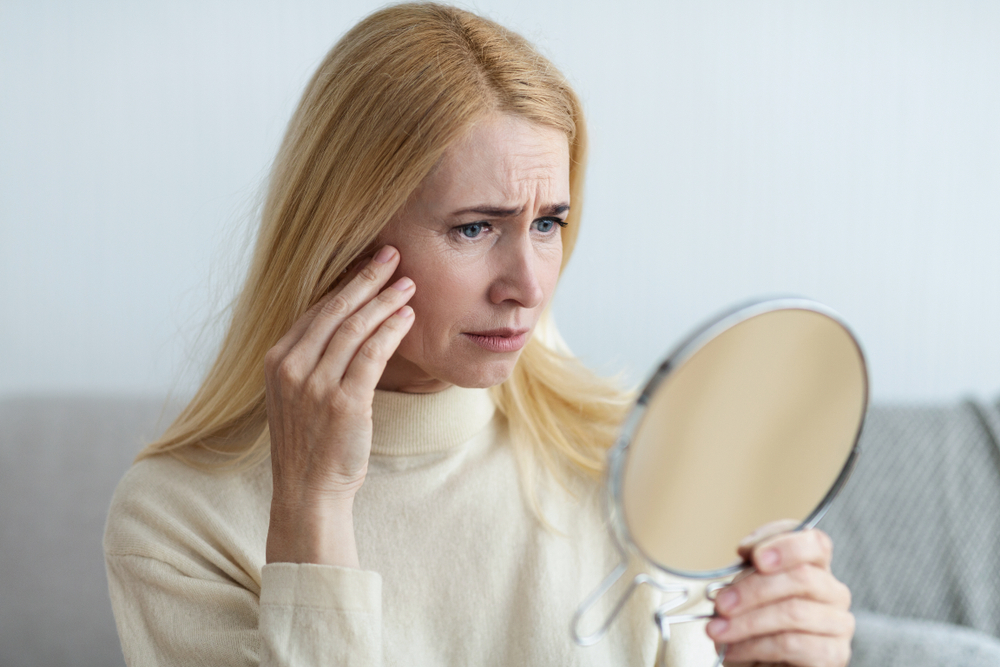Studies show our diet can have a major impact on our health and the appearance and condition of our skin. Obviously, fast food, sugary snacks, caffeine, and alcohol are bad for you but there are also healthy foods that can cause our skin to become more sensitive and accelerate premature aging leading to the development of fine lines and wrinkles. For a glowing, youthful complexion, it’s best to limit (or avoid) these foods which could damage your skin and put you at risk of serious health issues.
1. Citrus Fruits

Oranges, lemon, lime, mandarin, grapefruit, and citron are rich in vitamin C, which supports a healthy heart, but they are also highly acidic, which can negatively impact your kidneys and cause bone and muscle deterioration. Eating high quantities of citrus fruits can also make the skin more sensitive to sun damage, increasing your risk of premature aging and sun cancer, according to Dr. Carole Hazan, cosmetic dermatologist and skin cancer expert.
The acidity in citrus fruits can disrupt your skin’s natural pH balance, leading to irritation, redness, and even breakouts. While vitamin C is fantastic for skin health when applied topically, consuming too much of it through acidic fruits can have the opposite effect. To protect your skin, enjoy citrus fruits in moderation and consider using a topical vitamin C serum instead. Always pair your citrus intake with sunscreen to shield your skin from harmful UV rays.
2. Red Meat
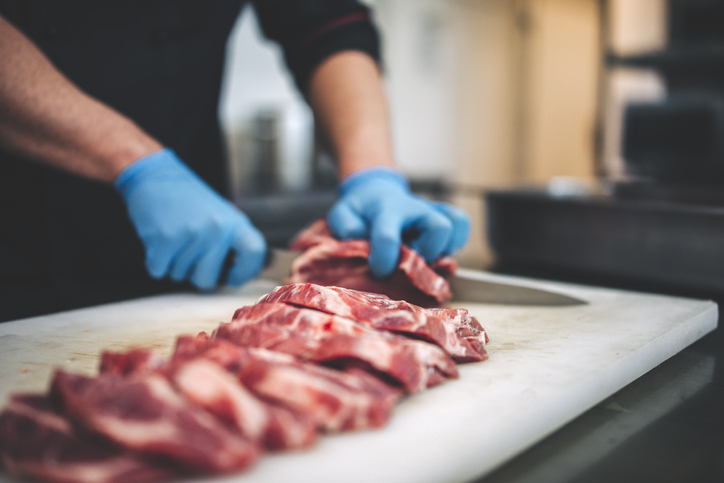
Red meat is often praised as a good source of protein and iron, but evidence suggests a link between its consumption and colorectal, pancreatic, and prostate cancers. This is because red meat contains a molecular component of hemoglobin that can produce carcinogenic (cancer-causing) chemicals in the body. Additionally, red meat contains carnitine, a compound that can harden blood vessel walls, reducing blood flow to the skin and triggering premature aging.
The World Cancer Research Fund (WCRF) advises reducing red meat consumption to three small portions per week and always choosing lean cuts. Overconsumption of red meat can also lead to inflammation, which accelerates the breakdown of collagen and elastin, the proteins responsible for keeping your skin firm and youthful. To maintain healthy skin, consider incorporating more plant-based proteins like beans, lentils, and tofu into your diet.
3. Tomatoes
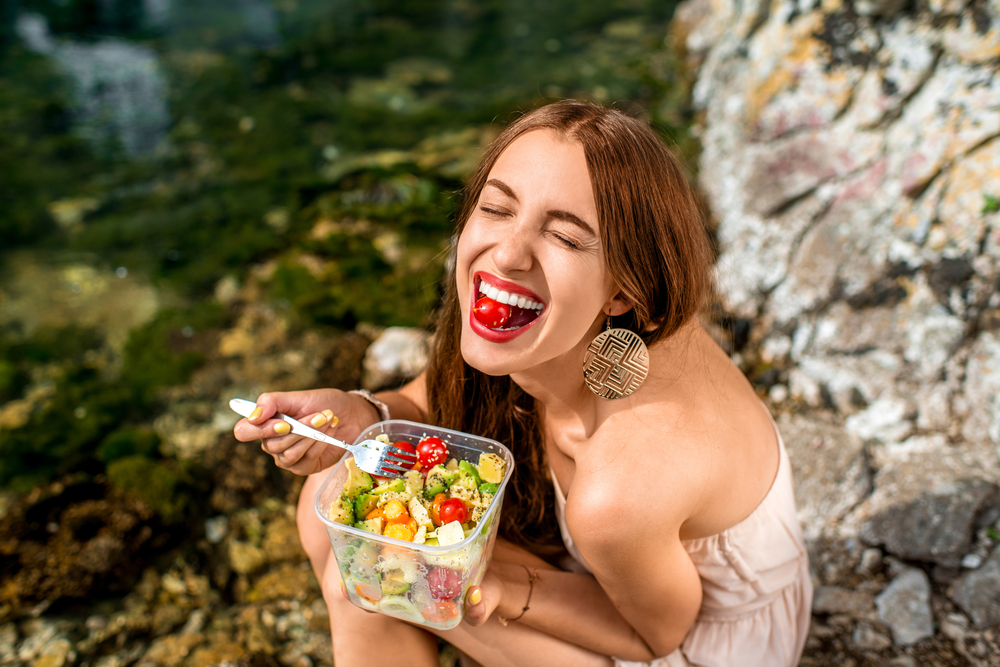
Tomatoes are a staple in many diets, known for their rich content of lycopene, a powerful antioxidant that protects skin cells from damage. However, tomatoes are also highly acidic, which can irritate the skin and cause allergic reactions, rashes, hives, or eczema in some individuals. Excessive consumption of tomatoes can increase photosensitivity, making your skin more susceptible to sun damage and premature aging.
While lycopene is beneficial for skin health, it’s important to balance your tomato intake to avoid adverse effects. If you have sensitive skin or are prone to conditions like rosacea, consider limiting your consumption of tomatoes and other acidic foods. Skin expert and holistic healer Monica Watters recommends always wearing sunscreen to protect your skin from UV damage, especially if consuming foods that increase photosensitivity.
4. Fried Foods

Fried foods like French fries, doughnuts, fried chicken, and onion rings have a high glycemic index (GI), spiking blood sugar levels and increasing the skin’s oil production (sebum). This can clog pores, leading to breakouts and acne. Additionally, deep-frying foods in vegetable or canola oil means you’re consuming trans fats, which contain harmful omega-6 fatty acids and free radicals that can clog arteries and reduce blood flow to the skin, speeding up wrinkles and premature aging.
The high levels of unhealthy fats and refined carbohydrates in fried foods can also cause inflammation, which damages collagen and elastin, the proteins that keep your skin firm and smooth. To protect your skin, opt for healthier cooking methods like baking, grilling, or steaming. Incorporating more whole, unprocessed foods into your diet can also help maintain a clear and youthful complexion.
5. Spinach
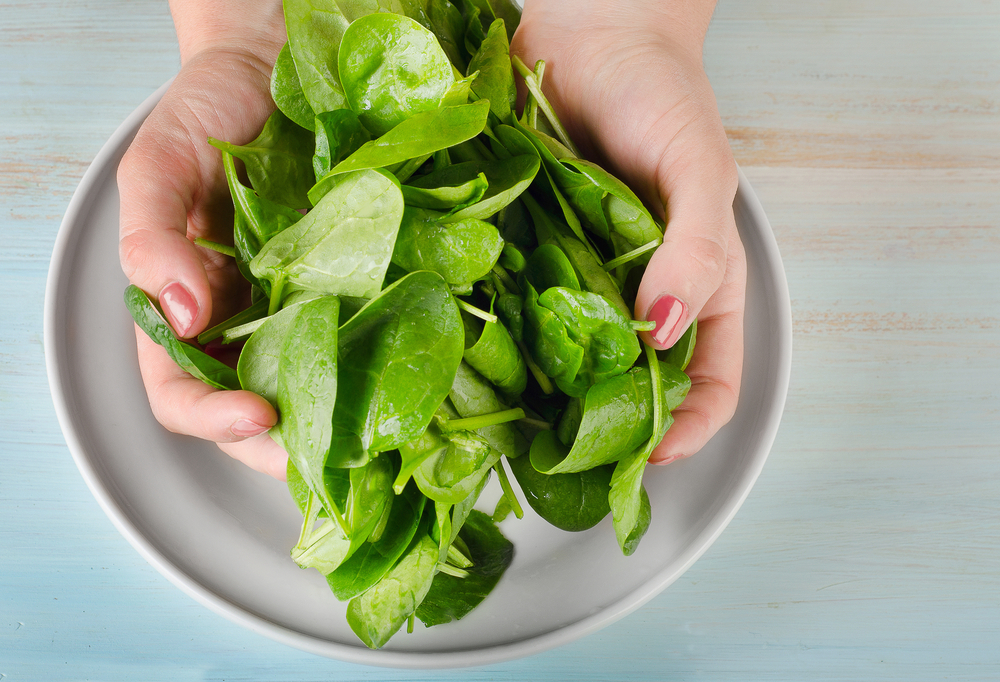
Spinach is often hailed as a superfood, packed with nutrients like iron, magnesium, and vitamins A and C. However, it’s also high in oxalates, a natural compound that can bind to calcium, magnesium, iron, copper, and zinc, preventing these minerals from being absorbed in the digestive tract. This can lead to kidney stones, gout, and stress on the body’s detoxification systems, directly impacting your skin’s health.
While spinach is undeniably nutritious, overconsumption can lead to mineral deficiencies and skin issues. To enjoy the benefits of spinach without the drawbacks, eat it in moderation and drink plenty of water to help flush out oxalates. Pairing spinach with foods high in vitamin C, like bell peppers, can also improve mineral absorption and support overall skin health.
6. Spicy Foods
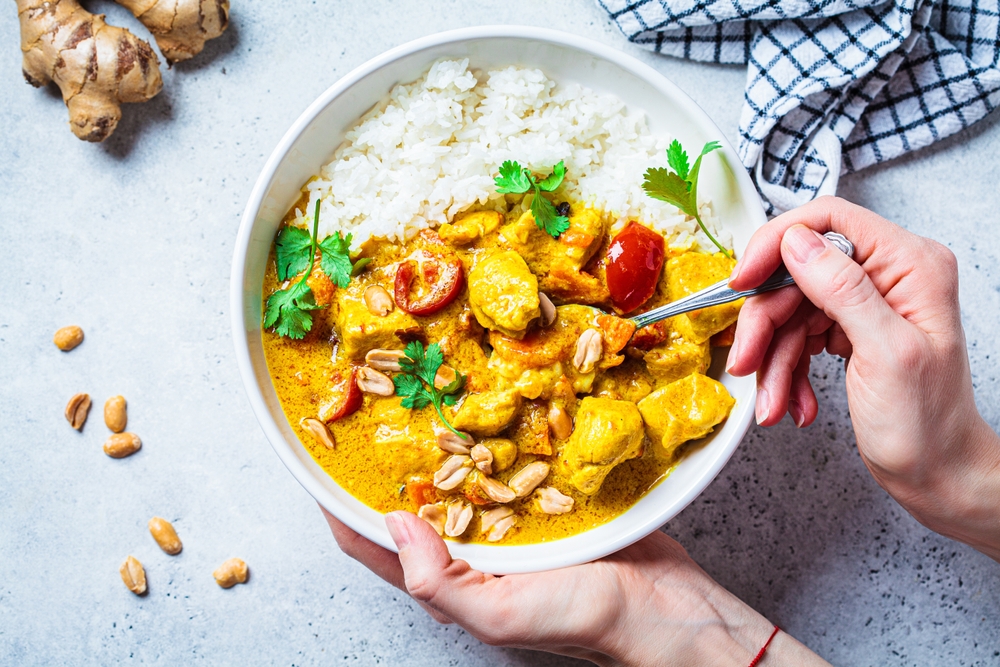
Spicy foods like chili peppers, hot sauces, and paprika can trigger skin sensitivity and inflammation, causing breakouts, redness, rosacea flare-ups, and even broken capillaries. Compounds like capsaicin, which give these foods their heat, stimulate the skin’s sensory receptors, causing redness and triggering inflammation. This can accelerate the aging process and aggravate acne symptoms, especially in individuals with sensitive skin.
While spicy foods can add flavor to your meals, they can also increase body temperature and dilate blood vessels, leading to facial redness and irritation. If you’re prone to skin conditions like rosacea or acne, limiting your intake of spicy foods is best. Opt for milder seasonings and herbs to add flavor without compromising your skin’s health.
7. Avocado
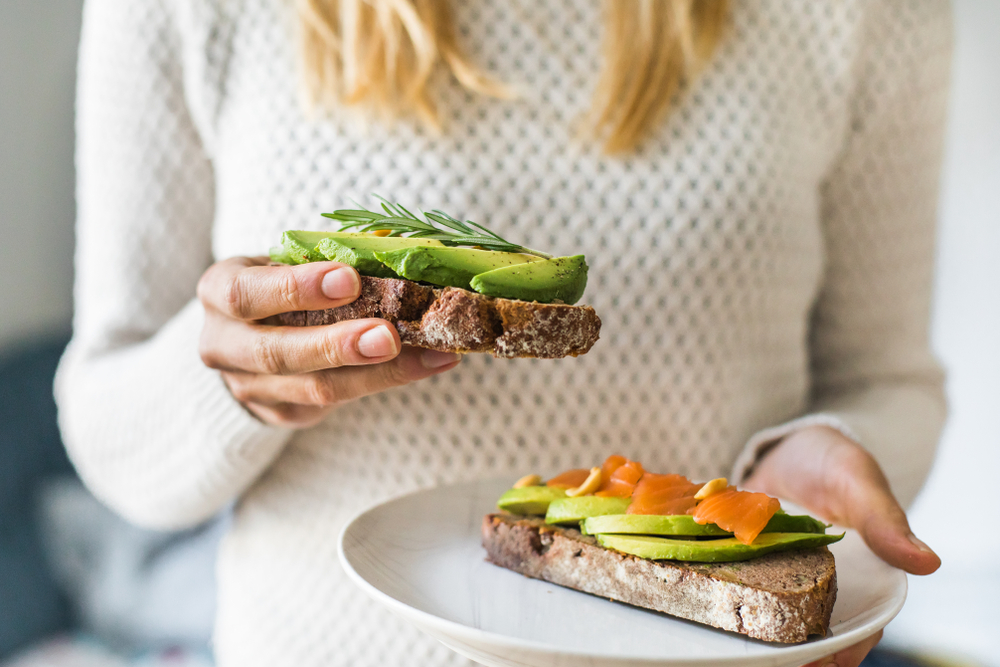
Avocados are often celebrated for their rich content of nutrients, vitamins, antioxidants, and healthy fats, which have skin-boosting benefits. However, they are also high in calories and carbohydrates like polyols or sorbitol, which can lead to weight gain and skin issues from stretched skin. For individuals with irritable bowel syndrome (IBS) or sensitive stomachs, avocados can cause bloating, diarrhea, and pain, which can indirectly affect skin health.
While avocados are a great addition to a balanced diet, moderation is key. Overconsumption can lead to gut health issues, which are closely linked to skin health. To enjoy the benefits of avocados without the drawbacks, limit your intake to a few servings per week and pair them with other nutrient-dense foods like leafy greens and lean proteins.
8. Ice Cream & Dairy

Ice cream is high in sugar and dairy, both of which are enemies to the skin. Eating too much sugar can cause glycation, a process where sugar molecules attach to collagen, harming its natural production and deteriorating its strength, resulting in fine lines and wrinkles. Dairy products contain hormones and androgens, which can trigger the release of insulin-like growth factor (IGF-1) and stimulate the skin’s cells to produce more oil, leading to inflammation, a breakdown in collagen, and skin conditions like rosacea and acne.
To protect your skin, consider reducing your intake of sugary treats and dairy products. Opt for dairy-free alternatives like almond milk or coconut milk ice cream, which are lower in sugar and free from hormones that can disrupt your skin’s balance. Incorporating more anti-inflammatory foods like berries, nuts, and leafy greens can also help maintain a clear and youthful complexion.
9. Processed Meats

Processed meats like ham, bacon, sausages, and deli meats are high in fat, salt, and chemical preservatives like nitrates and nitrites. These additives can damage the skin’s structure, break down collagen, and cause inflammation, which can worsen conditions like rosacea and acne. Additionally, processed meats have been linked to an increased risk of cancer, heart disease, and diabetes, all of which can negatively impact your overall health and skin appearance.
To protect your skin and overall health, limit your consumption of processed meats and opt for lean, unprocessed protein sources like chicken, turkey, or plant-based alternatives. Incorporating more whole, unprocessed foods into your diet can also help reduce inflammation and support healthy, glowing skin.
10. Soy Foods
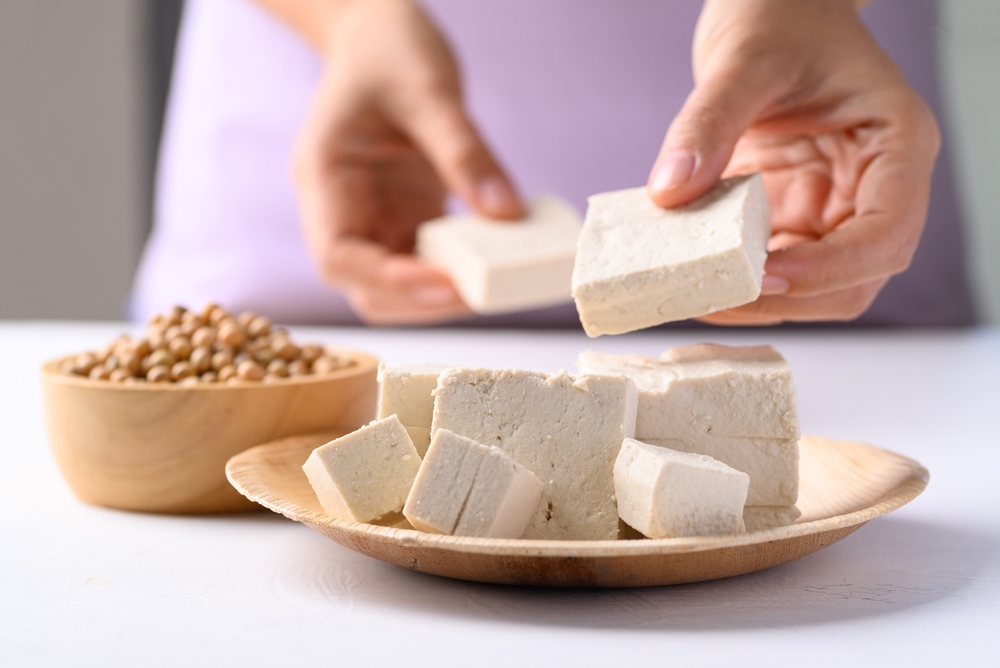
Soy, found in tofu, soy milk, sprouts, and edamame, is low in salt and a great source of protein and B vitamins. However, it also contains phytoestrogens, which can disrupt the body’s hormones and throw them out of balance. This hormonal imbalance can lead to breakouts, skin irritation, and an acceleration of aging, particularly in individuals with sensitive skin or hormonal conditions.
To enjoy the benefits of soy without the drawbacks, consume it in moderation and choose organic, non-GMO sources. Pairing soy with other nutrient-dense foods like vegetables and whole grains can also help balance its effects on your skin and overall health.
11. Sugar & Sweet Treats

Sugar is a major culprit when it comes to skin damage. It can cause inflammation in the body, disrupting gut health and dehydrating the skin. Common offenders like energy drinks, candy, artificial sweeteners, sodas, and fast food are high in sugar and artificial flavors, which can speed up premature aging by breaking down collagen and elastin.
Cutting back on sugar can significantly improve your skin’s texture and reduce the risk of premature aging. Opt for natural sweeteners like honey or maple syrup in moderation, and focus on whole, unprocessed foods to maintain a clear and youthful complexion.
12. Carrots
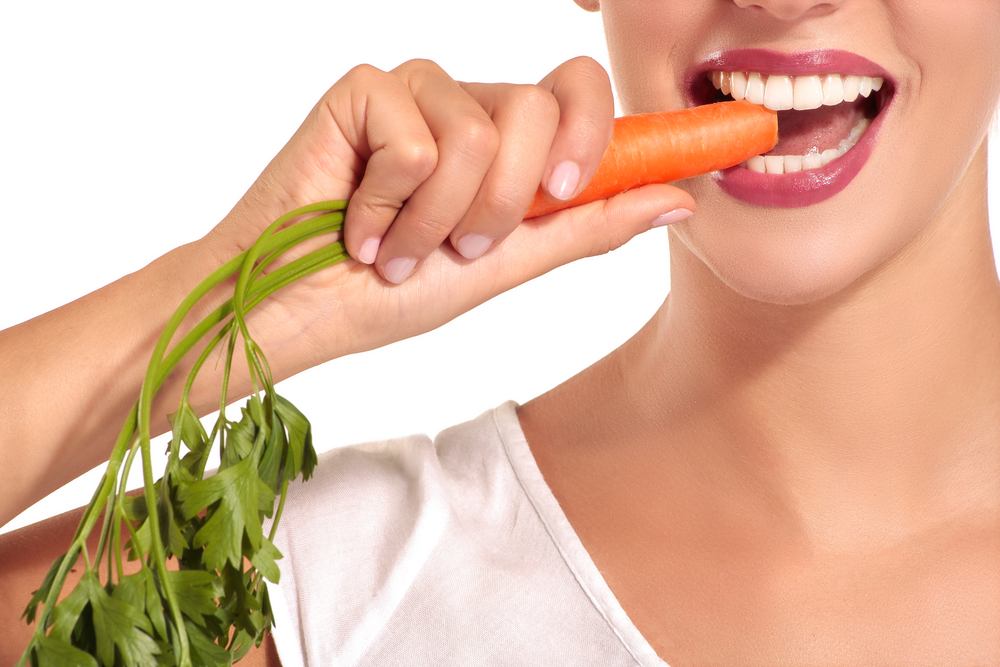
Carrots are high in beta-carotene, which the body converts to vitamin A, making them generally healthy for the skin and beneficial for anti-aging. However, eating too many carrots can lead to carotenemia, a condition where the skin takes on a yellowish hue due to an excess of beta-carotene in the bloodstream.
While carrots are a nutritious addition to your diet, moderation is key. Enjoy them as part of a balanced diet that includes a variety of colorful fruits and vegetables to ensure you’re getting a wide range of nutrients without overloading on any single one.
13. Bad Carbs & Unhealthy Fats

Not all carbs are created equal. While whole grains contain healthy carbs, refined carbohydrates found in white bread, pasta, and pastries can spike blood sugar levels, leading to glycation and speeding up skin aging. Unhealthy fats, found in butter, margarine, chips, crackers, and condiments like ketchup and mayonnaise, can cause inflammation, weight gain, dehydration, and a loss of skin elasticity.
To protect your skin, focus on consuming healthy carbs like quinoa, brown rice, and oats, and incorporate healthy fats like avocado, olive oil, and nuts into your diet. These choices can help maintain your skin’s elasticity and keep it looking youthful and radiant.



